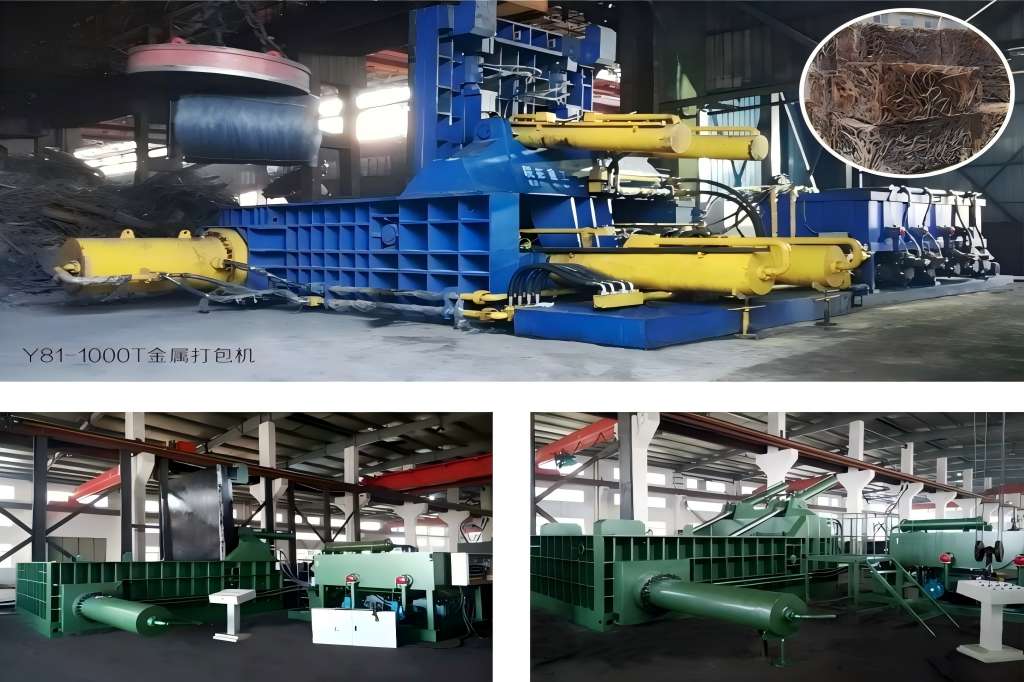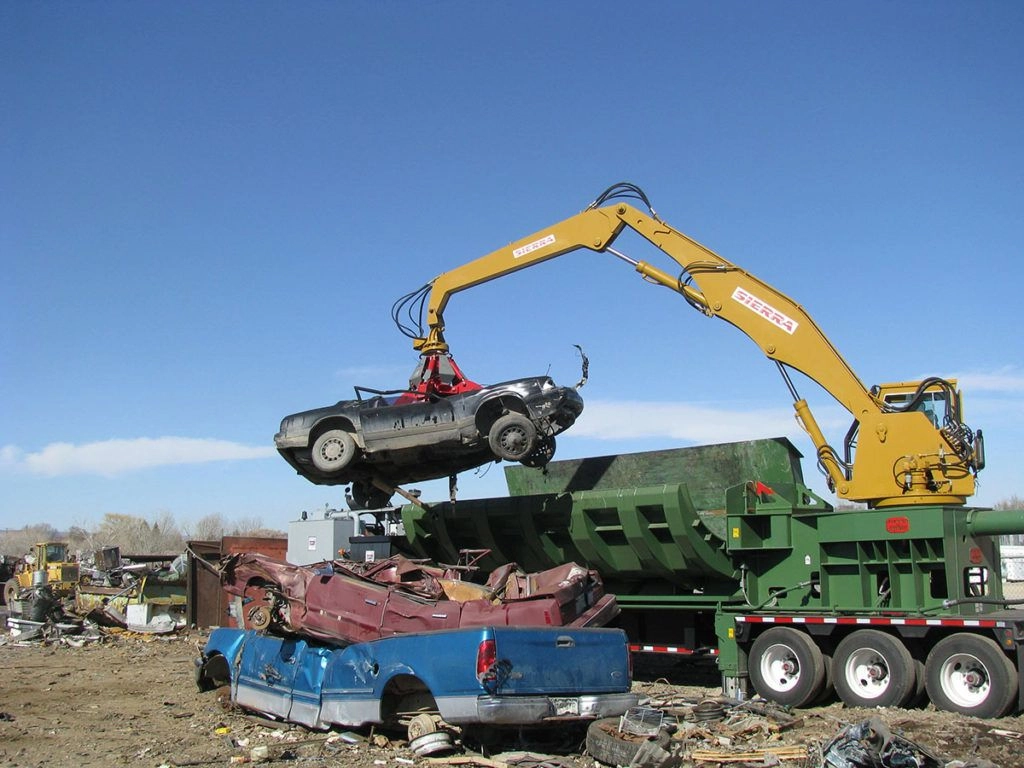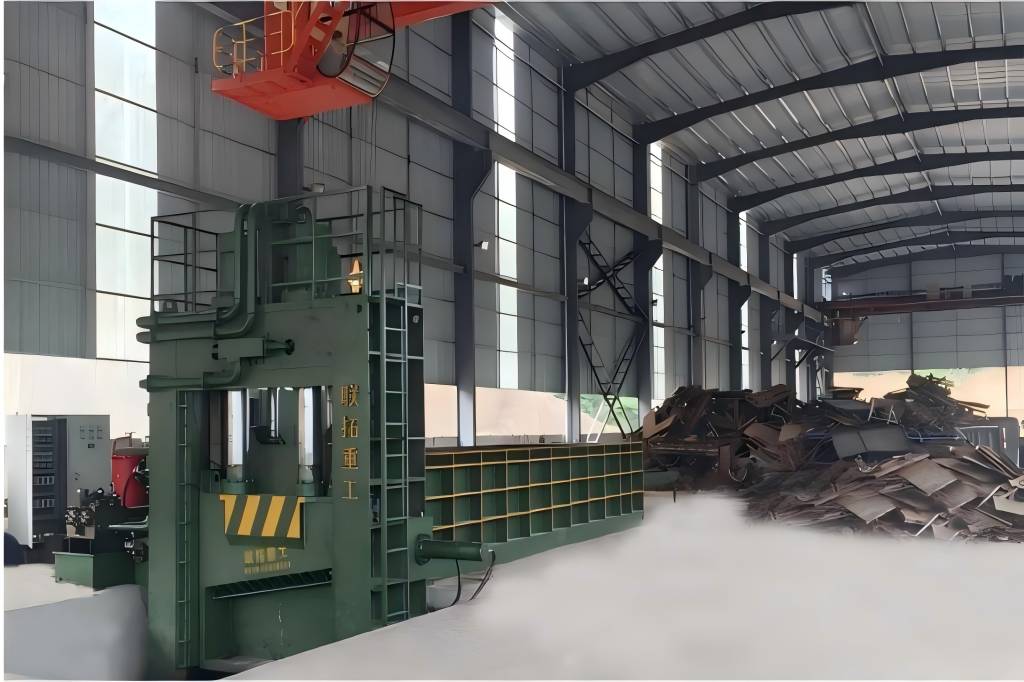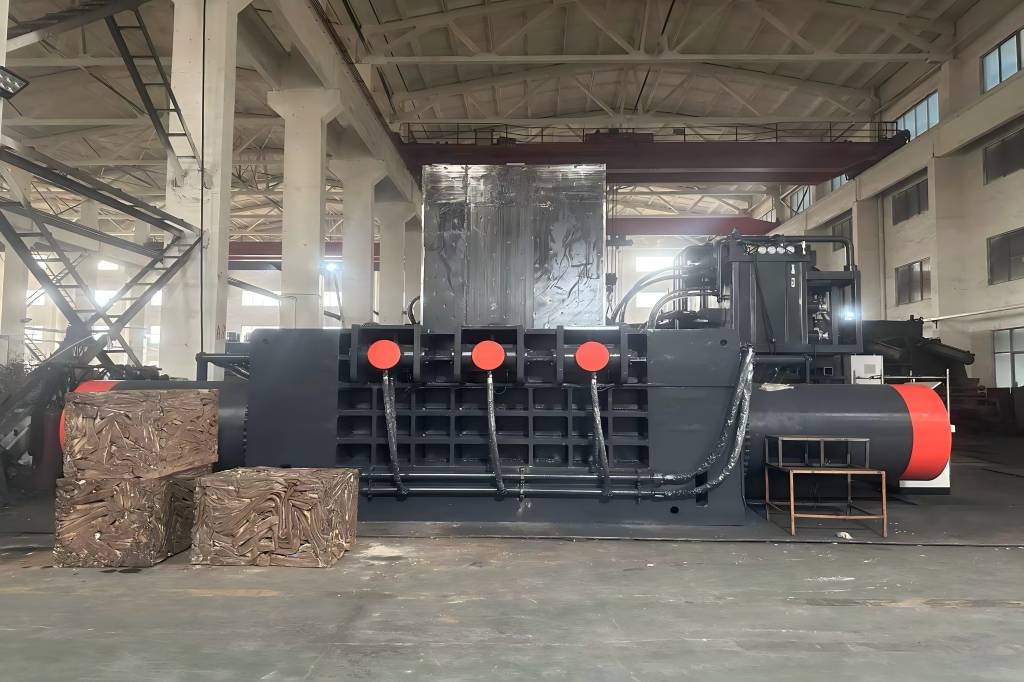In the recycling industry, scrap metal balers are essential tools for efficient waste management and resource recovery. By compressing metal into dense bales, they cut storage and transport costs, boosting operational efficiency. Choosing the right baler is key to maximizing ROI, minimizing costs, and maintaining productivity.
This thorough article offers insights into optimizing return on investment while examining the crucial elements to take into account when choosing a scrap metal baler.
Types of Scrap Metal Balers
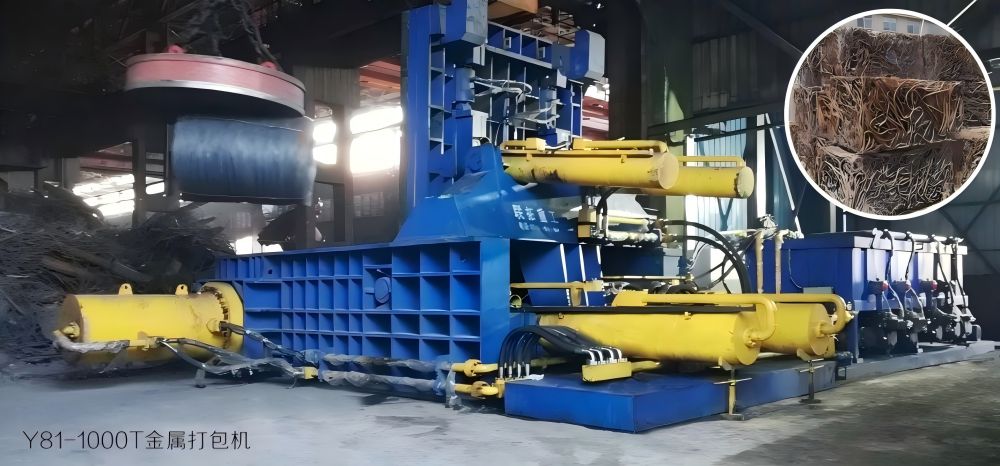
There are several designs of scrap metal balers, and each is appropriate for a particular set of operational requirements. You may select the baler that best suits your company’s capacity and scrap processing needs by being aware of the main varieties available.
- Vertical Balers: These compact machines are ideal for small-to-medium-sized operations. They are appropriate for establishments with limited space because of their lower footprint. Vertical balers are best for handling light metals and aluminum cans.
- Horizontal Balers: Common in larger recycling facilities, horizontal balers are designed for continuous operation and high throughput. They are ideal for companies dealing with large scrap volumes or requiring a high level of automation.
- Single-Ram Balers: These balers feature a straightforward design and are generally less costly. They are effective for materials that do not require complex compression, like small aluminum items.
- Two-Ram Balers: Equipped with a second ram, these machines provide more force and versatility, making them suitable for a variety of metals and materials that need extra compression for optimal density.
Consider the type of metals you process and your daily scrap volume. For high-throughput facilities, a horizontal two-ram baler is likely the best fit, while smaller operations with occasional baling needs might prefer a vertical baler.
Assessing Scrap Volume and Material Types
Your business’s scrap volume and the types of metal you handle significantly influence the choice of baler. High-throughput facilities benefit from horizontal balers with advanced compression, while smaller operations might only need a compact vertical baler.
- Heavy Metals (e.g., steel, iron): Opt for high-capacity balers that can handle dense materials and generate high bale density.
- Light Metals (e.g., aluminum): Vertical balers with moderate compression power are often adequate for businesses that primarily process lightweight materials.
The compression power impacts the final bale density, which in turn influences storage, handling, and transportation costs. Higher density bales mean reduced transport trips, optimizing storage and contributing to long-term ROI.
Facility Space and Layout Considerations
Balers vary in size, and choosing a model that fits within your facility’s available space is crucial. Vertical balers require less floor space than horizontal models, making them ideal for smaller facilities or operations with limited layout flexibility. In larger facilities, horizontal balers can be integrated into the layout more seamlessly, with conveyor belts and sorting stations set up for maximum efficiency.
Evaluate your facility’s layout and consider how the baler’s location will impact the workflow. A well-placed baler can reduce manual handling, increase productivity, and prevent unnecessary transport of materials within the facility.
Labor Costs and Automation
Labor costs are a significant part of the total ROI for scrap metal balers. Automated balers can reduce labor requirements, allowing workers to focus on other tasks and minimizing the chances of operational slowdowns. Automated two-ram balers, for instance, require minimal manual handling and supervision, whereas semi-automated or manual balers may need constant attention.
- Automated Balers: Best suited for high-volume operations with the resources to invest in advanced technology, automated balers can run with minimal oversight and reduce labor costs in the long run.
- Manual or Semi-Automated Balers: These options are better for smaller operations where full automation may not be financially viable. They have lower upfront costs but may increase labor expenses.
Automation can be a financially advantageous option for businesses with high labor expenses. Automated balers deliver continuous processing with minimal downtime, which can lead to faster ROI through savings in labor and increased throughput.
Bale Density and Transportation Savings
Bale density is a major determinant of ROI. Dense bales save space, allow for more efficient storage, and reduce the frequency of transport trips. Balers with higher compression capabilities yield denser bales, which in turn reduces logistics costs by maximizing the volume of scrap that can be transported at once.
- Balers for Light Metals: Metals like aluminum can reach optimal density with moderate compression balers.
- Balers for Heavy Metals: Heavier metals require high compression power for maximum bale density.
By producing denser bales, businesses save on transportation and storage costs, contributing directly to profitability. Choosing a baler with sufficient compression power for your specific metals ensures you maximize your ROI through cost-efficient logistics.
Durability, Maintenance, and Longevity
The durability and maintenance requirements of a scrap metal baler significantly affect ROI. Balers that need to be repaired frequently can be becoming expensive in terms of both repair costs and downtime. High-quality machines with robust construction and easy access points for maintenance offer better long-term ROI.
- Quality Construction: Balers with wear-resistant parts and sturdy construction minimize downtime.
- Maintenance: Make sure replacement parts are easily accessible and select balers with easily accessible maintenance points.
A durable, well-maintained baler minimizes unplanned downtime, keeping operations running smoothly. Investing in a machine with a long service life and minimal maintenance needs ensures better cost savings and a faster ROI.
Energy Efficiency and Environmental Considerations
With rising energy costs, energy-efficient balers can lead to significant savings. Modern balers often come with energy-saving features like automatic shut-off when idle or variable speed motors, reducing power consumption and operational costs. Environmental factors are also crucial because many companies want to follow sustainable business practices.
- Energy-Efficient Motors: These reduce power usage, especially in high-capacity balers that run continuously.
- Automatic Idle Shut-Off: Saves energy during downtime, lowering utility bills.
Energy-efficient balers reduce the overall operating costs, making them a wise choice for businesses prioritizing both cost savings and environmental sustainability.
Cost, Financing Options, and Budgeting for Long-Term ROI
Balers are a considerable investment, with prices varying widely depending on type, size, and capabilities. Budget-conscious businesses should consider financing options, allowing for a gradual investment that aligns with cash flow. Leasing or financing can enable businesses to start benefiting from a baler’s efficiencies without a significant upfront expense.
- Outright Purchase: Ideal for businesses with available capital, offering long-term savings by eliminating monthly payments.
- Leasing and Financing: Allows companies to pay over time, reducing upfront costs and aligning with budget cycles.
Assess potential savings from labor, energy, and transportation costs. Calculating these factors against the purchase or leasing cost provides a clear picture of the expected ROI timeline.
Manufacturer Reputation and After-Sales Support
Choosing a reliable baler manufacturer can ensure better quality, customer support, and after-sales service. A strong reputation is often a sign of reliable machinery, and after-sales support ensures minimal downtime if issues arise. Manufacturers that offer extended warranties and customer support are preferable, as these services can reduce the lifetime cost of the baler.
- Customer Reviews and Testimonials: Reviews can reveal insights into the machine’s durability and the manufacturer’s reliability.
- Availability of Parts and Service: Manufacturers with readily available parts and comprehensive service networks minimize downtime.
A reliable manufacturer with good after-sales support reduces long-term risks, ensuring a smoother operation and reducing costs associated with repairs and downtime.
Conclusion
It is crucial to carefully evaluate operating requirements, financial constraints, and long-term objectives when choosing a scrap metal baler. From understanding baler types and facility constraints to evaluating durability, energy efficiency, and manufacturer support, each aspect contributes to maximizing ROI.
By making an informed choice, businesses can achieve higher operational efficiency, reduce costs, and contribute to sustainable practices, all while strengthening their bottom line.

